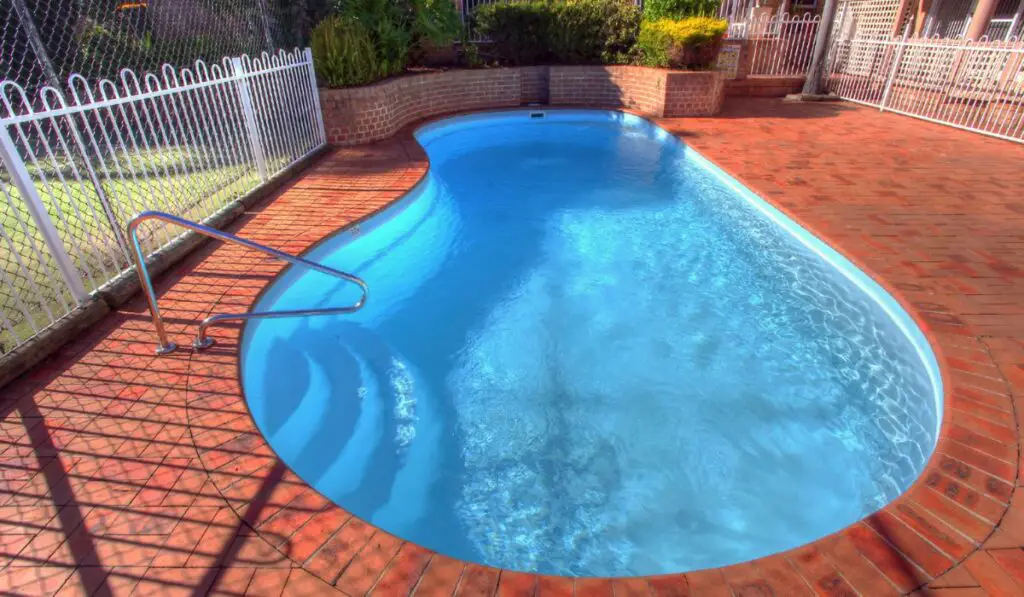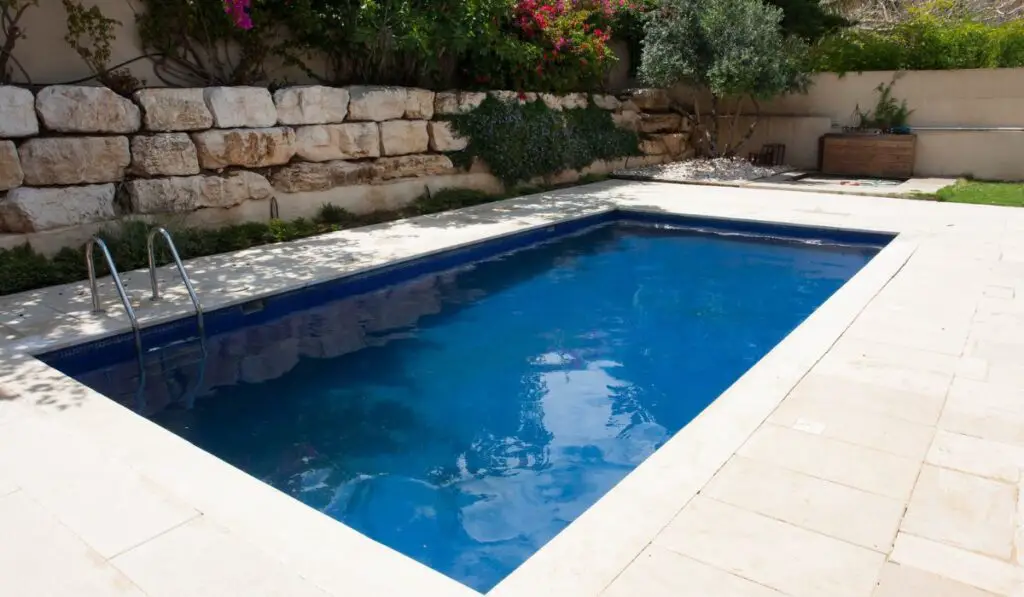It can be concerning to step out into your backyard for a swim only to find that the water level of your pool seems to have gone down. Gurgling noises from the skimmer are also a sign of your pool losing water. But the question is: Are you losing water because of evaporation, or is there a bigger issue at hand?
Your pool might be losing water because of splash-out, evaporation, or a leak. Adding a pool cover will help reduce the amount of water your pool loses because of evaporation. It’s also best to perform a bucket evaporation test, and then fix any leaks you find as soon as possible.
It’s important to understand that even properly functioning pools will lose water naturally over time. However, if your pool loses more than a quarter-inch of water every day in the summer, then there’s something more problematic at play. Let’s look at exactly what causes a pool to lose water and discuss how you can fix the issue.
What Causes A Pool To Lose Water?

Losing water can result in a costly water bill and can even overwork or damage your water well’s pump. If you notice that your pool’s water level is lower than normal, then there can be a few reasons behind it.
Splash-out
Splash-out occurs naturally when you leave and enter the pool. Water features, like waterfalls or spillways, also cause splash-outs. While the water loss might seem negligible, it can add up if you have several people in your pool.
Damaged piping
If your pool’s water level only decreases when you turn on the pump, then it’s highly likely that the problem lies with the piping or components on your pump’s pressure side. Leaks in the plumbing are usually subtle, so try to look for puddles or areas that are wetter than their surroundings.
Backwashing
Filters that are equipped with the backwash feature usually cause water loss. You may lose water when you’re backwashing the filter or the multiport valve itself could be leaking water from the backwash line.
Humidity
The amount of water that your pool loses overnight varies throughout the swimming season. Turning on the heater during winters will warm up your pool and evaporate more water.
Conversely, as the air stays hot and humid overnight during summers, the water in your pool will evaporate more quickly. However, you can easily prevent heat and water from escaping your pool by keeping it covered when it’s not in use.
Evaporation
Every swimming pool experiences evaporation, but some conditions increase the amount of water that escapes your pool. For instance, lots of humidity, strong winds, and high temperatures increase a pool’s evaporation rate. So, a swimming pool in a dry, windy climate like El Paso will usually evaporate faster than a swimming pool in Dallas.
Pools without any tree cover or enclosures also have a faster evaporation rate than those with proper protection and shade. This is because they’re more exposed to the sun and other weather elements.
Because hotter weather increases the evaporation rate, your pool will likely lose more water during summer than during the cooler winter months. However, if your pool’s water level is lower than usual during winters, then you might have a leak.
Leaks
Although pools are designed to be completely watertight, there are several issues that can cause leaks. For example, seals and o-rings can wear out, especially if you don’t perform regular pool maintenance.
Also, if any of your pool’s accessories or plumbing fittings stop working, then it’s highly likely that a leak will occur. It’s crucial to find and fix leaks as soon as possible, so you don’t lose any money on wasted heat, money, or chemicals.
If your pool liner is causing the problem, make sure you patch it to prevent things from getting any worse. Keep in mind that if you leave any leaks unaddressed, they might wash away all your pool’s fill dirt, causing even costlier problems.
You can easily determine whether you have a leak by turning off your pump for a day and then checking if the water level drops by more than a quarter of an inch to half an inch. Leaks usually occur in the pump system or in the pool’s structure itself.
It’s best to check around the skimmer, piping, drains, and fittings on the suction side of the pool pump for leaks, and then fix them if you find any.
How To Stop Your Pool From Losing Water
During droughts, most inground pools lose around 60 to 120 gallons of water every day just because of evaporation. Fortunately, you can easily stop your pool from losing water by turning off any water features that may result in additional evaporation.
Check for Leaks and Fix Them ASAP

If you think the reason behind your pool’s water loss is a pool leak, you can conduct a bucket test to find out for sure:
- Switch off the auto-fill system.
- Switch off the pool pump.
- Fill your swimming pool to its proper level.
- Mark the water level on your pool’s skimmer.
- Fill a bucket almost to the top and place it on your pool’s first step.
- Check the water level of the pool and the bucket after 24 hours.
- Take notes.
- Turn on the pump, and then repeat the test.
If the water in the pool and bucket goes down by almost the same amount, then you’re likely losing water because of evaporation. However, if your pool’s water level drops lower than that of the bucket, then you have a pool leak.
If the pool’s water level decreases while the pump is off, you may have a leak in the suction side plumbing or in the structure of the pool itself. However, if the pool loses water when the pump is running, then there’s probably a leak in the pump’s pressure side plumbing.
Add a Pool Cover
It’s best to cover your pool when it’s not in use. Make sure you also turn the thermostat down when you’re not swimming to reduce the amount of water that your pool loses in the winter.
